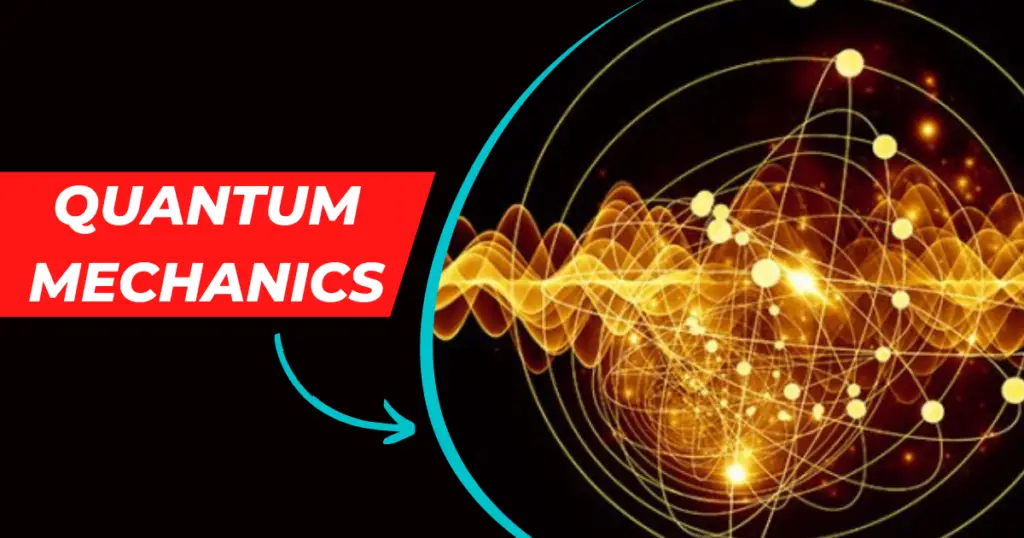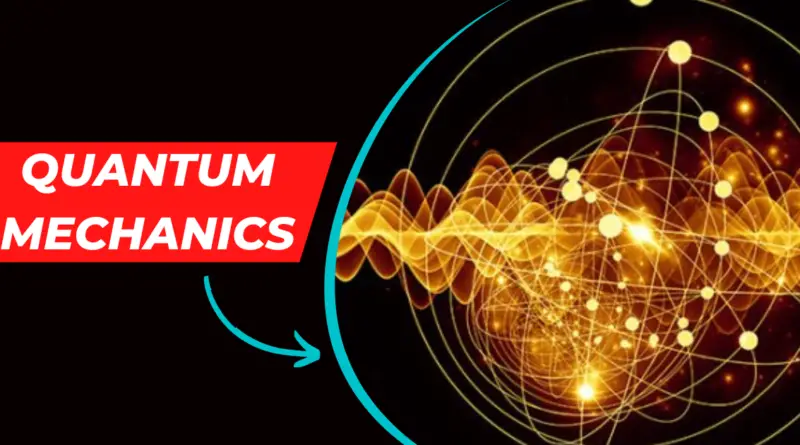Exploring the Basics of Quantum Mechanics and How It Relates to Particle Physics and Quantum Computing
What is Quantum Mechanics and Why Is It Important?
Quantum Mechanics is a branch of physics that deals with the behavior of matter and energy at an atomic and subatomic level. It is responsible for explaining phenomena such as the wave-particle duality, entanglement, and superposition. Quantum Mechanics has been used to explain many physical phenomena that were previously unexplainable by classical physics. It has also been used to develop new technologies such as quantum computers and quantum communication networks. In addition, it has allowed us to gain a better understanding of relativity theory, particle physics, and other areas of science. Quantum Mechanics is an essential tool for scientists today, providing them with insights into the nature of reality at its most fundamental level.
The Building Blocks of Quantum Mechanics - Exploring the Fundamentals

Quantum mechanics is a field of physics that deals with the behavior and interactions of matter and energy at the atomic and subatomic level. It is one of the most fascinating and complex branches of science, which explains many phenomena that are still not fully understood. This article will explore the building blocks of quantum mechanics, such as wave-particle duality, Heisenberg uncertainty principle, Schrödinger equation, etc., in order to gain a better understanding of this fascinating field.
Schrödinger equation
The Schrödinger equation is a fundamental equation of quantum mechanics that describes the behavior of particles and waves. It was developed by Austrian physicist Erwin Schrödinger in 1926 and is one of the most important equations in modern physics. The equation describes how an object’s wave function, which contains information about its position, momentum, and other characteristics, evolves over time. This equation is used to predict the behavior of particles on a microscopic scale and has been applied to many areas such as chemistry, materials science, and nanotechnology. It is also a key tool for understanding phenomena such as superconductivity and superfluidity.
Heisenberg uncertainty principle
The Heisenberg uncertainty principle is a fundamental law of quantum mechanics that states that it is impossible to simultaneously measure the exact position and momentum of a particle. This principle was formulated by German physicist Werner Heisenberg in 1927 and has since become one of the most important principles in modern physics. The uncertainty principle states that the more precisely you measure one property of a particle, such as its position, the less precisely you can measure its other property, such as its momentum. This means that there is always an inherent uncertainty in measuring both properties at once.
Understanding the Relationship between Particle Physics & Quantum Mechanics
Particle physics and quantum mechanics are two closely related fields of science that have revolutionized our understanding of the universe. Entanglement, qubits, and superposition are key concepts that help explain the relationship between these two disciplines. Entanglement refers to the phenomenon where particles interact with each other regardless of distance. This allows for information to be exchanged between particles instantly, regardless of how far apart they are. Qubits allow for information to be stored in a single particle, while superposition allows a particle to exist in multiple states at once.
By understanding the relationship between particle physics and quantum mechanics, we can gain insight into some of the most mysterious phenomena in nature such as dark matter and energy. We can also use this knowledge to develop new technologies such as quantum computing which promises to revolutionize computing power and speed.
Quantum Computing - How We Can Leverage its Power to Solve Complex Problems
Quantum computing is a revolutionary technology that has the potential to solve complex problems that are beyond the capabilities of traditional computers. By leveraging qubits, or quantum bits, instead of binary bits, quantum computers can process data faster and more accurately than ever before. This increased processing power can be used to tackle optimization problems in areas like finance and logistics, as well as other types of problems that require vast amounts of data to be processed simultaneously. With further advances in this field, quantum computing has the potential to revolutionize how we approach problem-solving.
Relativity Theory & Its Impact on Our Understanding of Space-Time
Albert Einstein’s special relativity theory revolutionized our understanding of the space-time continuum. This theory states that the speed of light is constant in all inertial frames of reference, regardless of the motion of its source or observer. This means that time and space are relative to each other, and can be distorted depending on the frame of reference and velocity. As such, it has had a profound impact on our understanding of space-time and how we perceive it. It has also had a major influence on physics, cosmology, and astronomy, leading to new discoveries about the structure and evolution of the universe.
What are the fundamental principles of quantum mechanics?
Quantum mechanics is a branch of physics that deals with the behavior of matter and energy on the atomic and subatomic level. It is one of the most complex and counterintuitive areas of physics, yet it has been proven to be incredibly accurate in describing how matter behaves at the smallest scale. The fundamental principles of quantum mechanics are based on a few key concepts such as wave-particle duality, Heisenberg’s Uncertainty Principle, and entanglement. These principles are essential for understanding the behavior of atoms, molecules, and other particles at this scale.
How does quantum mechanics explain the behavior of particles on a subatomic level?
Quantum mechanics is an area of physics that deals with the behavior of particles on a subatomic level. It explains how particles interact with each other and how they can be manipulated to create new materials, technologies and even universes. Quantum mechanics has revolutionized the way we understand the universe and has enabled us to explore phenomena that were previously impossible.
What experiments have been conducted to verify quantum mechanical principles?
Quantum mechanics has revolutionized our understanding of the universe, but it can be difficult to verify its principles experimentally. To better understand the laws governing quantum systems, scientists have conducted a variety of experiments to test and confirm quantum mechanical principles. These experiments range from studying the behavior of single particles to exploring how entanglement works in complex systems. By conducting these experiments, researchers have been able to gain a deeper insight into the nature of quantum mechanics and its implications for our understanding of the universe.
What are the implications of quantum mechanics for modern physics?
Quantum mechanics is one of the most important theories in modern physics. It has revolutionized our understanding of the universe and how it works. It has also had profound implications for other areas of science, such as chemistry, biology, and cosmology.
Quantum mechanics has allowed us to explore the behavior of particles at an incredibly small scale and understand phenomena that could not be explained by traditional physics. It has also opened up new possibilities for computing and communication technology with its principles of entanglement and superposition.
The implications of quantum mechanics are far-reaching, from understanding the structure of atoms to providing insight into the nature of black holes. Its discoveries have enabled us to explore some of the deepest mysteries in modern physics, such as dark matter and dark energy. As we continue to uncover more about this fascinating field, we can expect even more applications in the future.
How does quantum mechanics differ from classical physics?
Quantum mechanics and classical physics are two of the most important theories in modern physics. While they both deal with the behavior of matter and energy, they differ in their approach to understanding and predicting the behavior of particles.
Quantum mechanics is based on the idea that particles can exist in multiple states at once, while classical physics assumes that all particles have a single state at any given time. Quantum mechanics also relies on probability to explain how particles interact with each other, while classical physics uses equations to predict how these interactions occur.
Both theories are essential for understanding how our universe works, but it is important to understand the differences between them when considering their applications. By understanding these differences, we can better appreciate the complexity of our world and use this knowledge to create new technologies and solve complex problems.
What technologies rely on quantum mechanical principles?
Quantum mechanical principles are the foundations of many cutting-edge technologies that are making a huge impact on our lives. From quantum computing to quantum cryptography, these technologies rely on the principles of quantum mechanics to make them work. Quantum computing, for example, uses qubits instead of bits to store and process data. This allows it to operate at much higher speeds than traditional computers. Quantum cryptography is another technology that relies on quantum mechanics by using photons to transmit information securely. It is also used in fields such as medicine and finance where secure communication is essential.
How can we use quantum mechanics to solve problems in science and engineering?
Quantum mechanics has revolutionized the way we think about science and engineering. With its ability to solve complex problems, quantum mechanics is now being used to solve problems in a wide range of disciplines, from physics and chemistry to engineering and computer science. By leveraging the power of quantum computing, scientists and engineers can explore new possibilities that were not possible before. This article will discuss how quantum mechanics can be used to solve problems in science and engineering, as well as potential use cases for this technology.
Are there any practical applications of quantum mechanics?
Quantum mechanics is one of the most fascinating and complex branches of physics. It has been used to explain phenomena such as superconductivity, magnetism, and even black holes. But what are some practical applications of quantum mechanics?
The answer is yes – there are a number of practical applications for quantum mechanics. In fact, many of the technologies we use today rely on quantum mechanics in some way. For example, quantum computing is being used to develop faster and more powerful computers, while quantum cryptography can be used for secure communication. Quantum sensors are being developed to detect magnetic fields with unprecedented accuracy, and even quantum teleportation has been demonstrated in laboratories around the world.
Conclusion: Unlocking the Power of Quantum Mechanics
Quantum mechanics is a powerful tool that can be used to unlock the mysteries of the universe. By understanding quantum mechanics, we can gain insight into the behavior of particles and learn more about the nature of reality. Quantum mechanics has already been applied to various fields such as computing, medicine, and materials science. With further research and development, quantum mechanics may provide us with even more revolutionary solutions and insights in the future.




